Intersex advocate Alicia Weigel wants us to celebrate our differences.
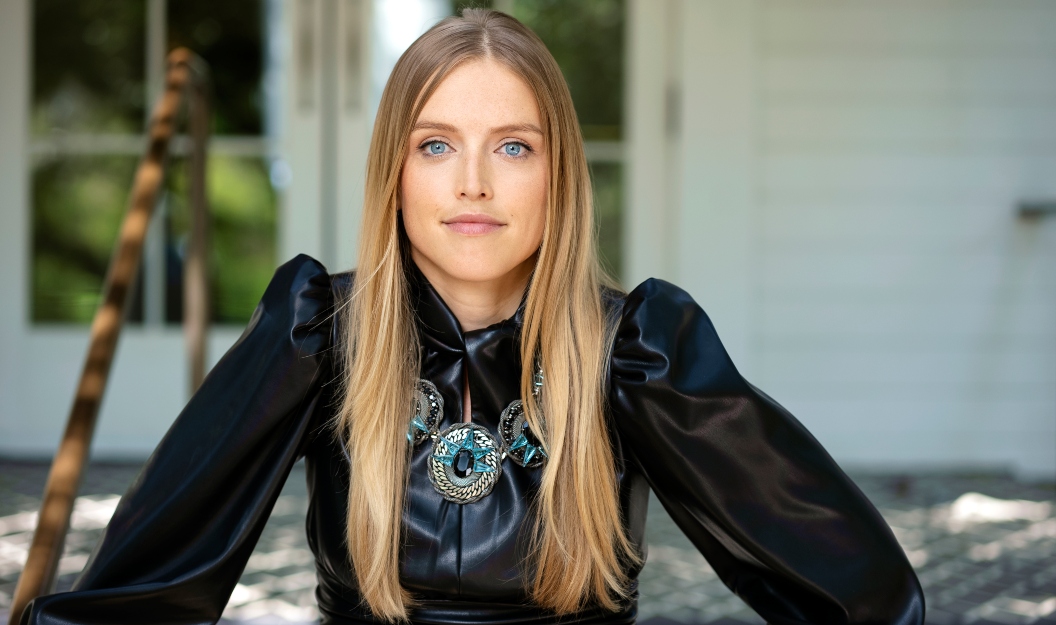
By Darby Kendall, Photos by Romina Olson, Styled by Parke Ballantine with inspiration from Estilo and Jewelry by Lo, Shot on location at Mattie’s at Green Pasture’s and at murals on Barton Springs Road
A cornerstone of the body positivity movement is encouraging conversations about social justice, equality, gender and race as they relate to our social constructs of beauty. Looking beyond the basic idea of self-love, this is a movement created by and for marginalized peoples seeking acceptance and respect. Not in spite of their physical differences, but because of them.
These conversations can be uncomfortable for some, given the taboo nature of discussing our bodies and their physicality. But not for our cover woman. Alicia Weigel is not afraid to talk about her body.
“We’re all born with bodies. We need to remove that layer of shame,” Weigel says. “The U.S. was founded under this puritanical culture where we are made to believe that we need to feel shame about those bodies. Certain people way more than others. The faster we acknowledge that we’re all born with bodies, so why should we feel this inherent shame for having them, the better things are going to be for anyone who has ever had an issue with self-esteem.”
Trying to Fix Me
As an intersex advocate, Weigel is no stranger to discussing her anatomy. Including in rooms full of strangers trying to legislate those like herself. Intersex people, as defined by the U.N. Office of the High Commissioner for Human Rights, are those “born with sex characteristics (including genitals, gonads and chromosome patterns) that do not fit typical binary notions of male or female bodies. Intersex is an umbrella term used to describe a wide range of natural bodily variations.”
Representing the “I” in LGBTQIA+, intersex people occupy a unique space in the moniker, given the varying nature of human development and the natural world itself.
Presenting outwardly as femme, Weigel was born with XY chromosomes and internalized testes. Her body doesn’t respond to the androgen hormones that testicles make (commonly known as male sex hormones). So while in the womb, she developed a vagina, but not the other internal sex organs common to females. Scientists refer to this as “complete androgen insensitivity.”
Had Weigel been able to keep her testes, her body would have converted the hormones it produced into estrogen, naturally regulating itself. However, she was sterilized at a young age, a procedure done to many intersex children before they are able to decide for themselves. So now Weigel has to take artificial hormones to quite literally survive.
“By trying to fix me, they broke me, essentially,” Weigel explains. “You are isolated by this label that you are given. Because that label is seen as a pathology, it’s seen as a negative medical trait. That immediately puts them in the mode of trying to fix you. When what you really realize is there was nothing wrong with you in the first place.”
Growing Up With Labels
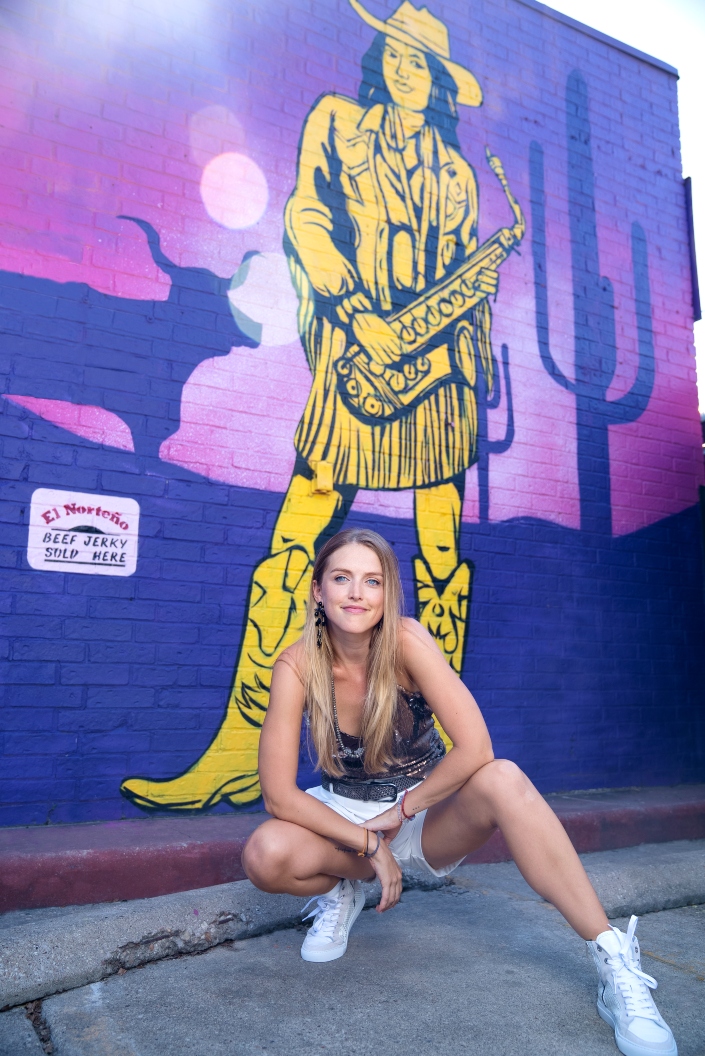
El Norteño Mural
The Austinite Market is a local and organic grocery.
1017 Barton Springs Road
austinitemarket.wixsite.com
Growing up with the label of complete androgen insensitivity to explain away her differences from her peers, Weigel never even heard the word intersex until she was 27 years old. She stumbled upon an article about Belgian model Hanne Gaby Odiele, who came out as intersex in 2017. And everything clicked into place.
“When I read her story, everything sounded just like my experience. The surgeries; when you’re a kid having to take hormones; having your parents and doctors tell you to never tell anyone because you won’t find love, because people will make fun of you. It all sounded exactly like my story. I went home that night and I googled the word intersex. I was like, ‘Holy shit, I am intersex,’” Weigel remembers. “That’s when I found out that I was part of a community and that there was actually nothing wrong with me. It took more than a quarter of a century for me to access that information and community and find out that there were other people like me.”
Alicia Weigel Moves to Texas
A year prior to her freeing revelation, Weigel moved to Austin. Marking her first time stepping foot not just in the city, but in the state of Texas. She made the move from California to help Wendy Davis found Deeds Not Words, an organization that promotes gender equity, right on the brink of the 2016 presidential election. Though Weigel grew up in the suburbs of Philadelphia and spent time post-grad living all over the globe—she lived on three continents and in six cities over the course of five years—she quickly found a home in Austin.
“This is the first place where I have made relationships and built a community authentically as myself,” Weigel says. “People know the real me, not the facade that I kept up for so much of my life. I think because of that Austin very much feels like home.”
Though Weigel enjoys living in a city where she can be her authentic self, simply existing in Texas as someone who doesn’t easily fit into the gender binary comes with its own set of challenges.
As one of the few intersex activists living in Texas, Weigel spends plenty of time at the Capitol. Fighting for the rights of intersex youth around the state. She explains that whenever legislators write and pass bills that target the rights of transgender youth, intersex folks are also affected by these limitations but often overlooked in the discussion.
Robbing Intersex Folx of Their Autonomy

In October, Gov. Greg Abbott signed House Bill 25. A law that requires student athletes in K-12 school sports to play on the team that corresponds with the sex listed on their birth certificate, regardless of their gender identity. When Weigel argued against the bill’s passage because, among other things, intersex youths also may not be allowed on their preferred team by these standards, she was informed of a possible loophole. But she describes why even that approach is innately flawed.
“One. They don’t put intersex on birth certificates. No matter what, they put either male or female, even if you’re born intersex. Two. They’re saying that it’s okay for people who are born in between genders at birth, but not for people who find out later,” Weigel states. “There are so many implications. Every time you see the trans community targeted at the legislature, which keeps happening over and over and over again, there’s literal language written into the bills to ensure harm on intersex communities too.
“Everything that they’re doing is trying to rob us of our autonomy. If body positivity is anything, it’s owning your autonomy over your own body…It’s really hard to have body positivity when your own government is stripping you of basic agency over your own body.”
Alicia Weigel: Human Rights Commissioner
As part of her efforts to combat inequality in her new home state, Weigel works as a human rights commissioner for The City of Austin. In the appointed role, she defends the rights of Austin’s citizens via drafting and enforcing nondiscrimination ordinances. This is her way to give back to the minority groups that have fought for her and other intersex folks in solidarity.
“Because some of my greatest allies have been people from the Black community or the trans community who are lifting intersex voices up, being able to do the same for them means a lot for me. It’s all so linked, all of our oppression is integrated, intricately tied to one another,” Weigel says. “Being in the community of other like-minded activists who envision a better world and have devoted their lives to making that a reality is really inspiring and moving. I feel very privileged to be able to lead this life.”
Never one to look past her privilege, Weigel knows that as someone who is both white and female-presenting, she’s had a relatively smooth path in life compared to many, particularly within the intersex community. “When I’m out in society, I don’t have a visible target on my back. I definitely acknowledge that, and it keeps me safe in a lot of ways.”
“Intersex People are F***ing Hot!”
“A lot of intersex people have intersecting identities. There are a lot of Black intersex people; a lot of nonbinary intersex people; there are a lot of fat intersex people,” she continues. “Not all intersex people look like me. A lot of intersex people are multiply-marginalized people that face oppression from a variety of angles. I want to very clearly acknowledge that. That my body positivity looks a lot different than a lot of other people’s.”
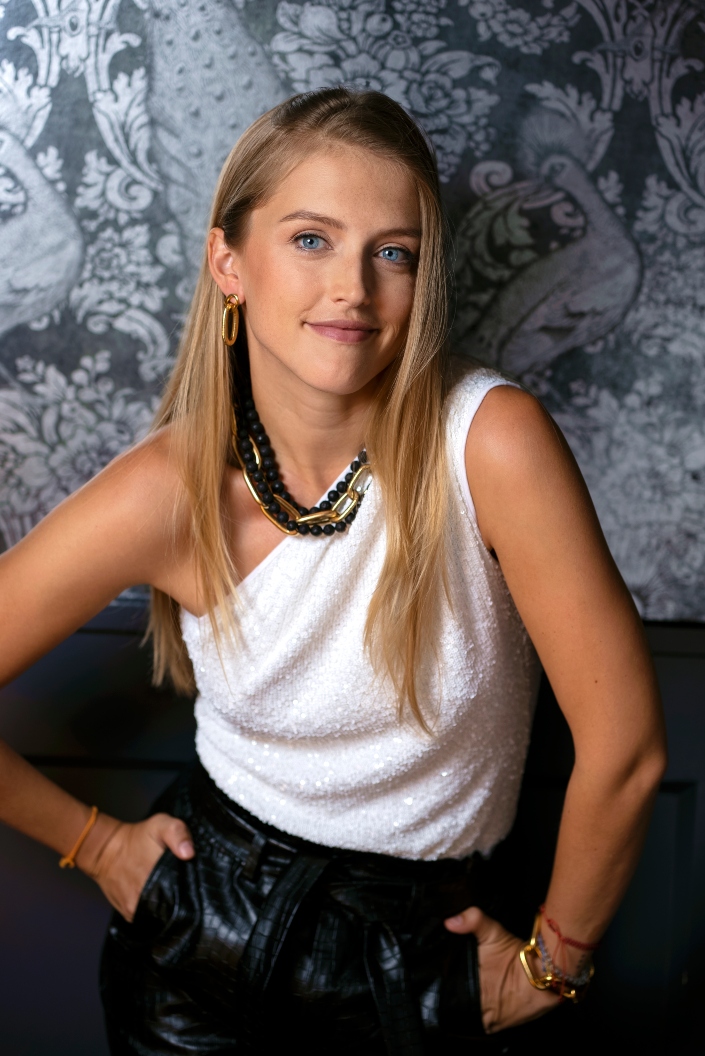
An essential part of Weigel’s body positivity journey has been reclaiming her sexuality. Weigel is all too familiar with society’s need to desexualize the intersex population. (“The fact that we were always called hermaphrodites and made to believe that we’re freaks in the butt of jokes,” Weigel explains.) So embracing her sexuality and feeling desirable is needed pleasure for her. “Be it through dancing or posting ass shots on Instagram.”
She describes that throughout her time in the intersex community, she has felt more welcome and more comfortable in her body. Alongside a realization that she puts succinctly: “Intersex people are fucking hot.
“I’m not even joking,” she elaborates. “I found out that I was intersex through hearing about a model. It’s not even just femme-presenting people; it’s any intersex person. We often have really great skin because our hormones function differently. Often have good cheekbones because of our biology. We end up coming out really beautiful in a lot of ways. We don’t age the same way, and a lot of it’s because of hormonal differences…We’re made to believe that we’re freaks. But we’re fucking beautiful.”
The Most Beautiful & Special
Another aspect of Weigel’s journey to self-acceptance is harnessing her unique traits into something that makes her stronger. One such trait is a perceived weakness that Weigel turned into a strength: her diagnosis of bipolar disorder. “Even thinking about it as a disorder is a disservice to other bipolar people…With my bipolar, just like my being intersex, with these things that make you different, we’re taught to believe that’s what makes us a freak. That’s what our problem is,” she says. “Oftentimes, I guarantee you if you look at it through a different lens, that can be the thing that makes you the most beautiful and most special.”
Reaching this place of comfort and joy with her identity has been a journey for Weigel. As a child she was regularly in and out of doctors’ offices for surgery and observation, leading her to often “feel like a lab rat.”
This early robbing of her bodily autonomy led Weigel to disassociate from her body. But growing up she found she could reconnect with herself again through physical activity like team sports. Now Weigel actively uses yoga, running and dance as ways to feel comfortable in her own physical form.
I Exyst
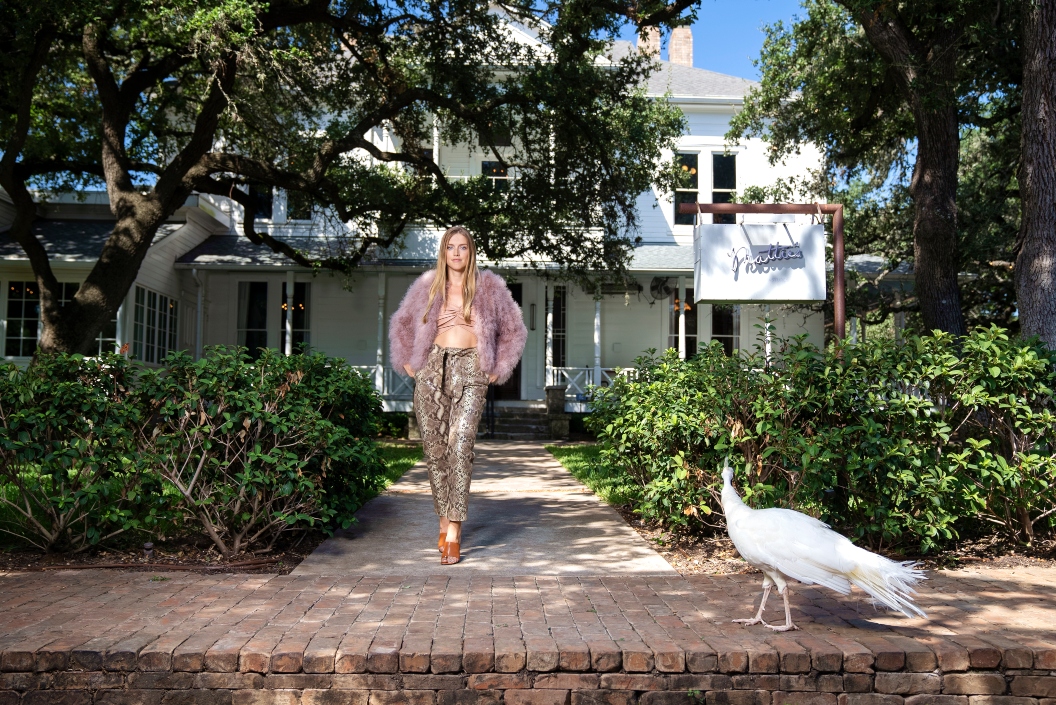
“For me, these aren’t just ways to be healthy or stay fit. They’re literally how I reconnect with myself and feel what they call ‘physiological embodiment,’ which is the opposite of dissociation. It’s literally bringing myself back into my body,” she says. “Another way that I’ve reclaimed my body, too, is through my tattoos. Because a lot of the decisions about what my body would look like or what happened to me were taken away from me as a kid. A way that I’ve reclaimed my power is literally through owning my own skin. Through getting ink on my skin. That’s been my decision, what I want, what I find beautiful.”
Weigel then points out three tattoos she relates to her intersex identity. The first is a tattoo stating “I exyst,” a nod to her XY chromosomes; the second, an orchid flower on her shoulder as they are a symbol of the intersex movement due to their unique reproductive anatomy; the third lays on the scar from the surgery where her testes were removed—the Tropic of Capricorn. She explains, “On some of my happiest days, I’ve literally passed road signs saying ‘You are now crossing the Tropic of Capricorn.’”
Though it took Weigel over 25 years to find her intersex identity and make peace with her body, she’s now making up for lost time by serving as a strong voice for her community and her rights. Looking to the future, she says she hopes intersex visibility will only grow. Allowing more people to come out and feel comfortable in their identity.
A Sense of Community
“Even the people who do find out [they’re intersex] earlier, because it’s so stigmatized, they’re not coming out,” she says. “That’s why I’ve tried so hard to be visible. Because now that trans folks are so visible, they’re becoming normalized as part of society. But until intersex visibility reaches that point, we won’t have intersex people coming out in the same way. Because at this point, ‘I’ basically still stands for ‘invisible’ in the LGBTQIA+ moniker.”
Along with her constant activism in politics, Weigel works to get the word out on intersex rights through multiple forms of media. Last month she featured on an episode of Getting Curious with Jonathan Van Ness titled “How Can We Put The ‘I’ In LQBTQIA+?”
She’s also working on a feature in an upcoming documentary on the subject, as a part of her unyielding effort to stand up for her community.
“When you’re intersex, you’re usually growing up completely alone; 99% of the time you’re growing up and you know no one like you. It’s a very isolating experience,” Weigel states. “I think being part of the intersex movement gives me a sense of community, and I feel like part of something bigger than myself, with people [who]are fighting for a better world. That feels really meaningful.”
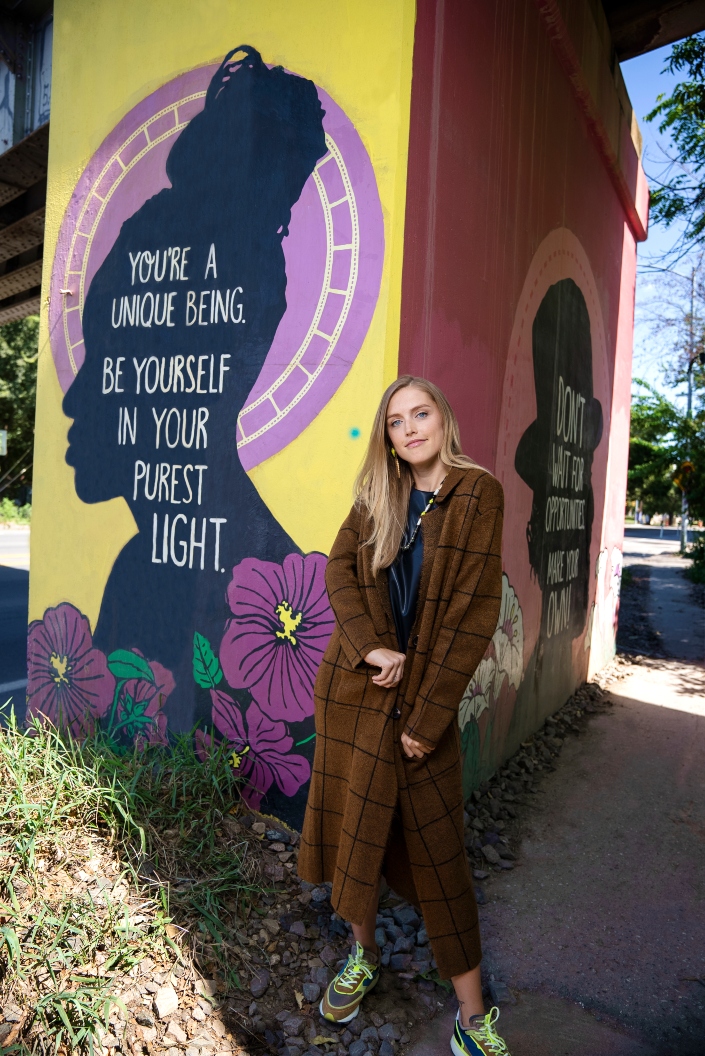
Color Squad
Color Squad is a collective of teen artists that design and implement public art that addresses a need in the community.
1203 Barton Springs Road
creativeaction.org/programs/teen-programs/color-squad
Around the U.S. femme-identified intersex advocates use their platforms to educate. Be a voice for the voiceless. Alicia Weigel shares some of the women who have inspired her as fellow advocates and fighters for justice.
Tatenda Ngwaru
Tatenda Ngwaru is a Black intersex activist based in Boston. An immigrant from Zimbabwe, Ngwaru founded True Identity, the first intersex organization in Zimbabwe. She’s also the subject of the documentary She’s Not a Boy. Find out more about Ngwaru on her website and personal blog tatendangwaru.com.
Kimberly M. Zieselman
Kimberly M. Zieselman is a lawyer, author, mother and advocate for intersex youth. She published her first memoir, XOXY, in 2020. She also serves as the executive director of interACT: Advocates for Intersex Youth and has been quoted and published in USA Today, The New York Times and by the U.N. Human Rights Office. You can find out more about Zieselman and her memoir at xoxykz.com.
Jahni Leggett
Jahni Leggett is an indigenous trans intersex educator (using both she/her/hers and they/them/theirs pronouns) and HRC Foundation Youth Ambassador based in Olympia, Washington. They also work with interACT, advocating for intersex youth and against sex-assigning surgeries on intersex children and babies. In October, they were part of a White House roundtable about Intersex Awareness Day, the first of such roundtables at the White House.
Being on the Frontier
The body positivity movement goes hand-in-hand with her work. It shares her effort to destigmatize bodies and accept our differences. Weigel understands the importance of embracing every aspect of yourself; she knows and loves herself, and now she hopes to spread that confidence to others.
“Maybe one day my existence can help other people understand that nothing in life is as binary or black and white as they believe it to be. That the gray areas are really cool and beautiful. We don’t need to be so afraid of them,” Weigel says. “People fear what they don’t know and understand. And they like things that fit into neat little boxes and categories. It makes it easier for people to process. But honestly, the coolest shit in life exists on the border, on the boundary or in that messy area. I think being on the frontier is a cool place to be.”
There are so many resources and channels of information about the intersex community. To educate yourself on the community and how you can be an ally, visit: Interact Advocates and the Intersex Justice Project.

